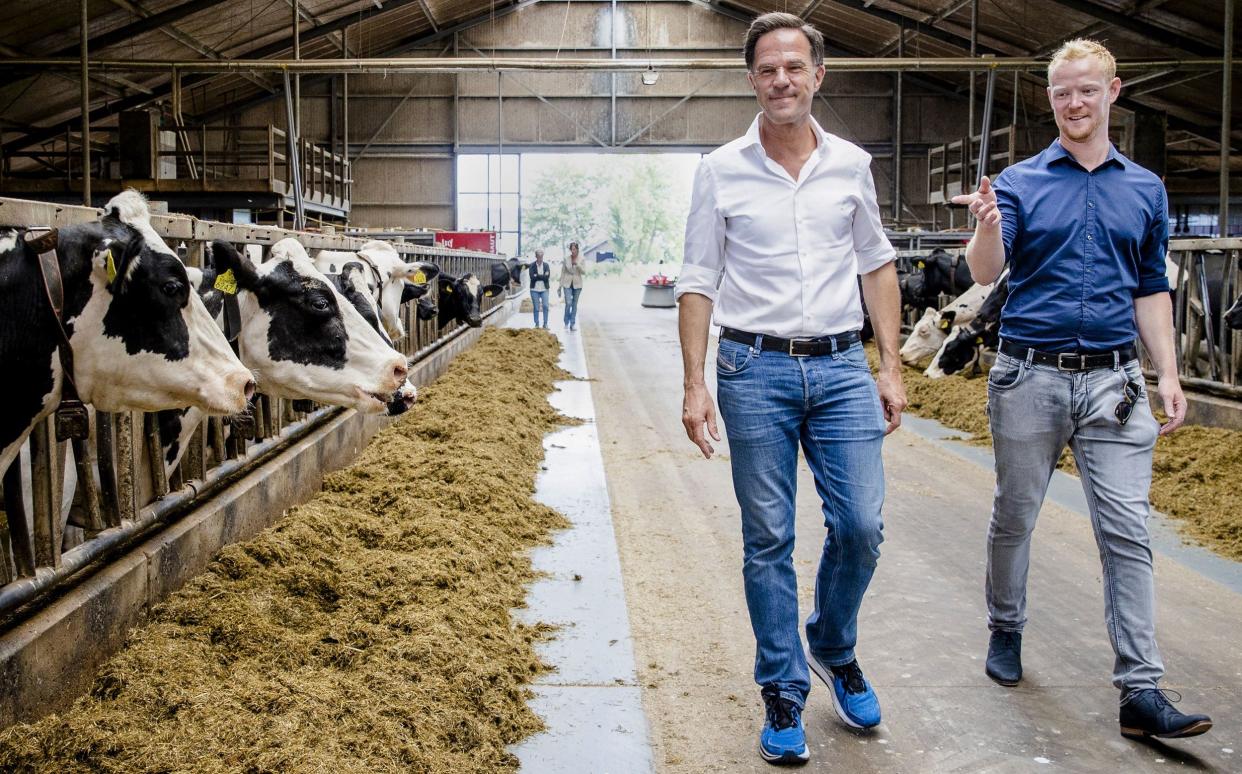Dutch government pauses nitrogen emissions policy after pro-farming party’s election win

- Oops!Something went wrong.Please try again later.
The Dutch government has agreed to pause its plan to drastically cut nitrogen-based emissions after a pro-farming party delivered a major upset in provincial elections.
Mark Rutte, the Dutch Prime Minister, on Friday announced that the Christian Democratic Appeal (CDA) party, one of his coalition partners, wants to renegotiate the commitment to halving the country’s nitrogen emissions by 2030.
Keen to protect his environmental credentials, Mr Rutte said the public should not think the coalition was putting the brakes on its emissions policy.
“The opposite is true, we are actually accelerating,” he said. “Nevertheless, there are opposing views in the Cabinet.”
Wopke Hoekstra, the CDA leader and Dutch Deputy Prime Minister, said: “2030 is not feasible for us.”
Pressure from the looming deadline, he said, “has pushed the solution further away”.
The Netherlands is one of the largest emitters of greenhouse gases in Europe, with farming accounting for 46 per cent of its total emissions.
The government’s pledge to cut nitrogen emissions in 2019 ignited a dispute with the country’s farmers, who fear for their livelihoods.

The government has tried to convince farmers to reduce their livestock herds or leave the industry in order to cut back on nitrogen use.
But the farmers have hit back with repeated protests, using their tractors to blockade roads, airports and supermarkets around the country.
In some cities, as many as 40,000 protesters have gathered to oppose the government’s plan, sometimes fighting police in violent, running battles.
The farmers, through a new party set up in 2019, were also the big winners in last month’s provincial elections, winning 15 out of 75 seats and becoming the largest force in Parliament’s high chamber.
The election was a major blow for Mr Rutte’s People’s Party for Freedom and Democracy, and was seen as a referendum on the Prime Minister’s rule.
Mr Rutte has said he soon wants to open a government buy-out scheme to compensate farmers who opt to leave the industry.
The government created a £22 billion programme to buy out farming businesses at 100 per cent of their value, but it remains to be seen whether many farmers will opt in to the scheme.

